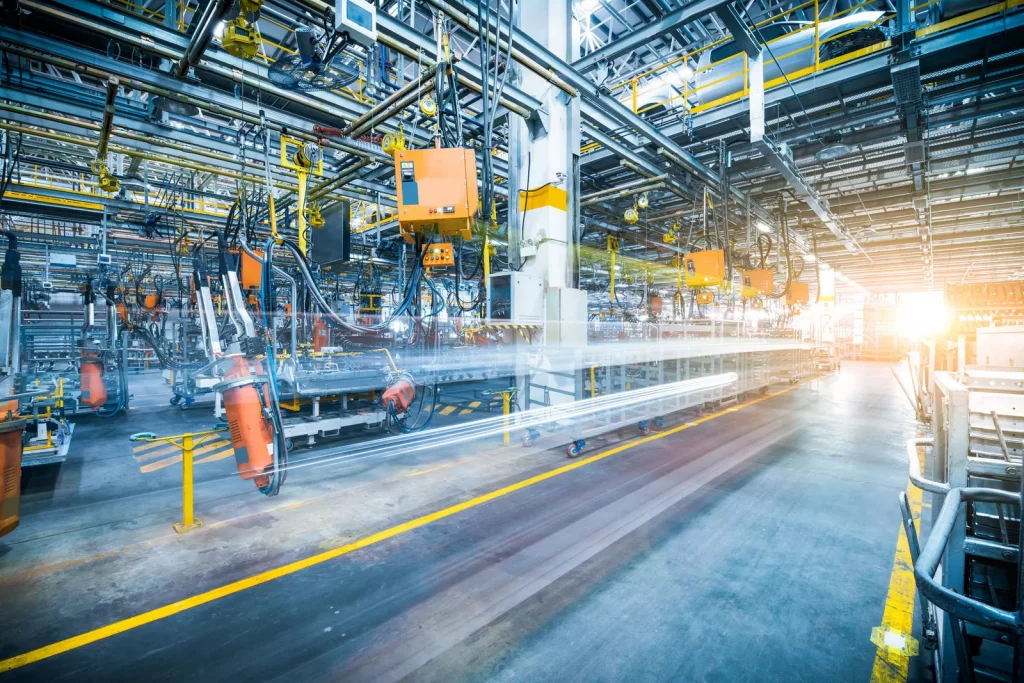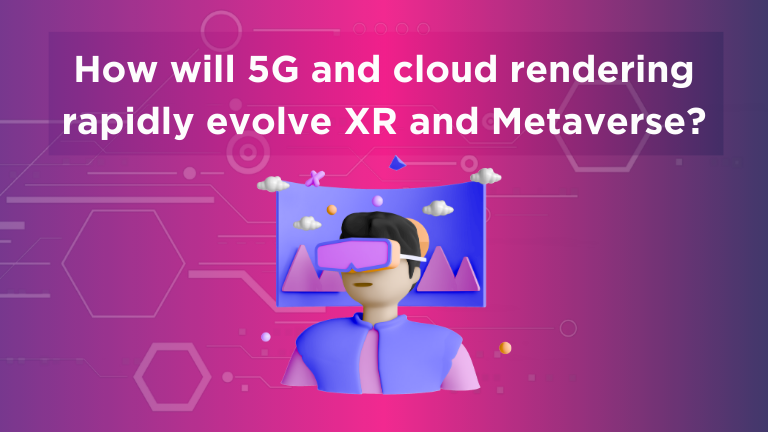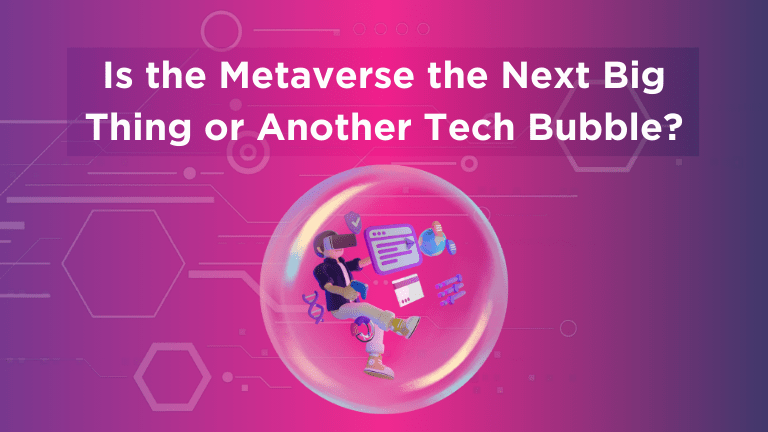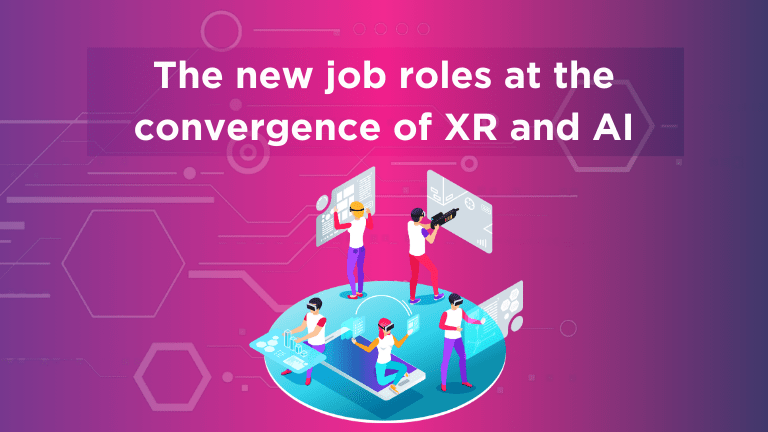The industrial Metaverse – The most successful version of the Metaverse?
The more companies explore the potential of Metaverse technology, the more we learn that it isn’t just a single environment. Instead, it’s a series of digital landscapes. These are designed to bring people together, remove boundaries, and improve collaboration.
This flexible ecosystem can adapt to various use cases. These range from helping team members communicate and work in virtual environments to delivering new customer service and providing support. While it’s still very much in its infancy, large areas of the media are still mainly talking about the consumer and enterprise metaverse. The one area that seems to be largely overlooked is the industrial Metaverse.
The industrial Metaverse has begun to generate significant attention in recent months. The World Economic Forum summit in Davos earlier in the year allowed attendees to discover first-hand what it might involve. According to some analysts, the industrial Metaverse could deliver more value faster than any other metaverse iteration.
While global technology leaders are struggling to figure out how to use the Metaverse to transform business environments and consumer entertainment, the industrial Metaverse is already changing how we design and interact with physical entities.
What is the Industrial Metaverse?

What is the industrial Metaverse? It’s a virtual or digital environment using digital twins, IoT, AI, 5G, XR, and various other technologies to streamline production, collaboration, and innovation.
The concept of the industrial Metaverse is similar to that of any metaverse. These landscapes aim to connect people around a shared objective in an augmented environment. However, while a true “consumer” metaverse has yet to fully emerge, the industrial Metaverse is already making waves. Companies have already begun creating versions of this landscape in the automotive, engineering, and manufacturing landscapes.
As with any metaverse, there’s more to a digitised industrial landscape than just “extended reality”. This seems a common factor in many use cases. During the IIoT world event, Dr Colin Parris of GE Digital shared his belief that this new metaverse space would be defined by 6 core technologies:
- Digital twins: Virtual models of processes and physical objects already present in the manufacturing and industrial landscape.
- IoT: Connected devices capable of transmitting data through the internet, enabling real-time insights into data for digital twins.
- 5G: Enhanced and ultra-fast connectivity systems, supporting faster data transmission between the devices companies use in the industrial space.
- AI: Intelligent bots, systems, and algorithms capable of deriving useful insights from large amounts of data and automating workflows.
- Blockchain: The environment on which Web 3.0 will be built, allowing for the decentralisation of data and technology.
- Cryptocurrency: Blockchain-based currencies supporting access to virtual tokens and coins within a metaverse environment.
The industrial Metaverse is already transforming not just the manufacturing space, with digital twins which help improve performance and reduce carbon emissions, but also the healthcare landscape. Healthcare industrial machines are embracing the Metaverse to give surgeons access to tools they can use remotely and intelligently for virtual care.
The Use Cases for the Industrial Metaverse
One of the reasons the industrial Metaverse is gaining more attention than other metaverse environments today is its wide variety of use cases. The industrial Metaverse focuses on providing workers with information and data in real-time, empowering staff in a way previously impossible with standard technology. Companies can leverage XR devices, like AR smart glasses, to provide access to real-time guidance to employees working on complex machinery.
Similarly, brands can leverage Mixed Reality and Virtual Reality headsets to allow employees to experiment with and build new products in a virtual landscape without waste or risk. The Metaverse also opens the door to the use of digital twin technology. This, infused with IoT, AI, and 5G connectivity, provides real-time insights into the performance of machines when teams are working remotely.
Global businesses have already begun experimenting with the possibilities. BMW and Bentley have used NVIDIA’s patented omniverse environment to build digital twins of their manufacturing facilities to speed up production times and reduce emissions. Microsoft and Boeing have collaborated in the Metaverse to design aircraft, reducing manufacturing issues and enhancing engineering opportunities.
Even NASA has begun working with industrial metaverse tools, launching ‘flight surgeons’ to space stations using Microsoft HoloLens headsets. With the technology already available, companies can:
- Reduce risk: Metaverse environments allow people to work remotely, improving collaboration and communication. They can also reduce the risk these team members face when dealing with heavy machinery. BMW’s virtual factory enables team members to collaborate cohesively, working with digital twins of complex tools.
- Improve operations: Digital twins allow companies to make more rapid changes and upgrades, providing access to useful information and insights. Using IoT data, companies can leverage useful information about the functionality of processes and machines in the industrial environment, increasing productivity.
- Boost productivity: Metaverse environments can boost productivity by providing employees with useful information when needed. Smart glasses and headsets allow team members to access critical information hands-free when working on machines and solutions. Even front-line workers can collaborate with experts and access crucial knowledgebase articles and documents on the move.
The Metaverse in the industrial landscape also provides companies a secure and risk-free setting where teams can experiment with new ideas and innovations without wasting resources. Companies can create and ideate without increasing emissions or causing other risks.
The Growing Demand for the Industrial Metaverse
At a time when companies still see the Metaverse as a concept destined to appear in the distant future, the industrial landscape is proving the Metaverse is already here. Even as this landscape continues to grow, there are still challenges to overcome.
Accessing more digital technologies and IoT solutions puts companies at risk of numerous cybersecurity issues. This is particularly when manufacturing is increasingly exposed to cybercriminal attacks. The “Metaverse” concept has yet to be fully regulated, and strategies are still emerging to police the environment going forward.
Additionally, while the Metaverse offers business leaders many opportunities, the implementation cost may still pose a challenge in today’s complex economic environment. Businesses are understandably wary about launching large-scale projects requiring major investment in new technology, expertise, and skill sets.
Despite these challenges, it seems certain that companies will continue to invest in the Metaverse and its industrial opportunities in the years ahead. The industrial landscape is in a perfect position to show us all what the Metaverse can do.




